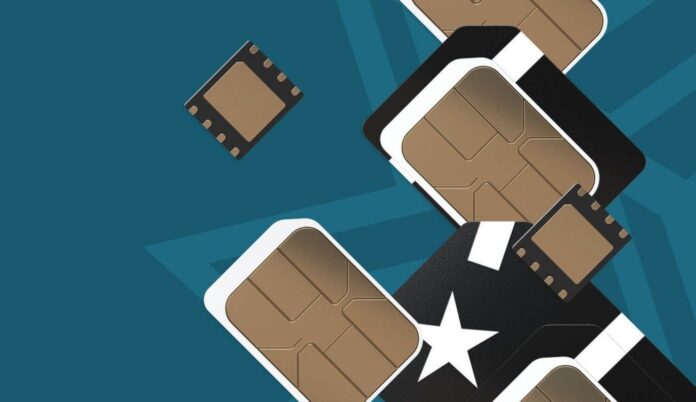KDDI-owned IoT connectivity provider Soracom has announced a deal with France-based outfit IDEMIA, a supplier of identity-related security services, to offer enterprise customers an optimised low-power embedded SIM (eSIM) with its power-constrained cellular IoT products in North America and Europe.
IDEMIA’s eSIM proposition, called DAKOTA SMART, offers low-power optimisation of LTE-M and NB-IoT devices in idle mode to reduce power consumption, via the suspend/resume and extended discontinuous reception (eDRX) features in embedded universal integrated circuit card (eUICC / eSIM) technology.
The IDEMIA eSIM proposition is more power efficient for LTE-M and NB-IoT services, it claims, while also supporting standard, 2G-through–5G cellular connectivity, as well. It is available in standard MFF2 (5x6mm), compact plug-in card (2x2mm), and chip-scale package form factors, with commercial- and industrial-grade versions available.
DAKOTA SMART is compatible with Soracom’s multi-IMSI solution, which extends profile management capabilities to any Soracom SIM (or eSIM) connected with on its standard global data plan. “This allows profile-swapping where multiple profiles are available without interrupting access to Soracom platform services,” it said.
IDEMIA supplies identity services to 600 government organisations and 2,300 enterprises in 180 countries; it has 15,000 employees. The arrangement with Soracom marks the first deployment of DAKOTA SMART in the US. Japan-based Soracom is offering eSIM with its IoT connectivity platform and IoT airtime roaming.
The latter was bolstered in March via a deal with Orange to leverage the French firm’s cellular roaming with 700 operators in 220 markets. Soracom claims around four million IoT connections already; it also claims to “serve” 20,000 enterprises in agriculture, energy, construction, transportation, manufacturing, real estate, and healthcare.
Last year, with new funds from Hitachi and Sony Group, Soracom relaunched its IoT platform, as Soracom Arc, to allow IoT developers “blended” connectivity support for devices using Wi-Fi, Ethernet, and satellite, as well as cellular low-power wide-area (LPWA) NB-IoT and LTE-M, and also the non-cellular LPWA technology Sigfox.
Kenta Yasukawa, cofounder and chief technology officer at Soracom, said: “Many potential IoT applications have strict requirements in terms of highly constrained memory, power and processing capabilities. Together, Soracom and IDEMIA are removing these barriers to entry, making it simple for companies to build new, leading-edge IoT experiences for their customers around the world.”
Jason Rousseau-Hall, business director for IoT connectivity at IDEMIA, said: “IoT demands and drives innovation to help bring this connected world to life. We are delighted to be part of the Soracom journey as [it] expand[s its] global reach and technology evolution. Utilising our flagship eSIM solution, with its full range of connectivity options, form factors and dedicated IoT features, together we will enable new innovative solutions in this diverse ecosystem.”

